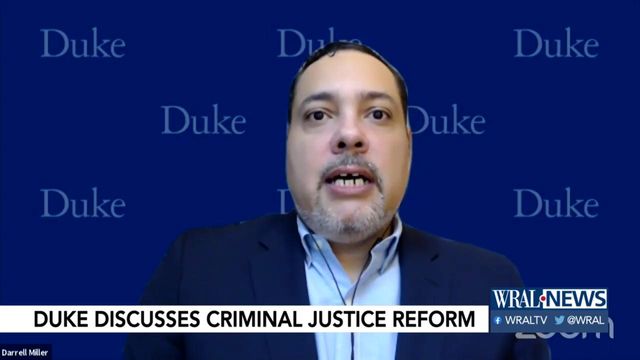Duke scholars: Police reforms must happen at local level
As communities across the country look at police reform, some Duke University professors say this is the time to rethink many facets of the criminal justice system.
Posted — UpdatedAs communities across the country look at police reform, some Duke University professors say this is the time to rethink many facets of the criminal justice system.
"That’s going to be detrimental to Black Lives Matter and black lives in general," he said. "I believe it will empower and embolden vigilantes. People who will engage in armed self-help that led to the deaths of Trayvon Martin 10 years ago and Ahmaud Arbery just this year."
"It’s very, very hard to hold police officers liable, even in fatal shootings, even captured on video, even shootings that seem totally unsupported," Garrett said.
He also called for greater internal accountability within police departments, independent investigations of misconduct allegations and a certification system to make sure officers fired for misconduct could be flagged if they applied at another police department.
Garrett also said the nation should rethink the role of police, especially regarding arrests for petty crimes. He calls for decriminalizing low-level offenses and ending the cash bail system. While federal legislation could address some concerns, Garrett said policing happens mostly at the state and local level.
"We need to looking to our local elected leaders to make deep change," he said.
Duke history professor Laura Edwards said the public has the right to determine what it wants from law enforcement.
"They have the right to define how government uses police powers and to what ends," she said.
Related Topics
Copyright 2024 by Capitol Broadcasting Company. All rights reserved. This material may not be published, broadcast, rewritten or redistributed.






